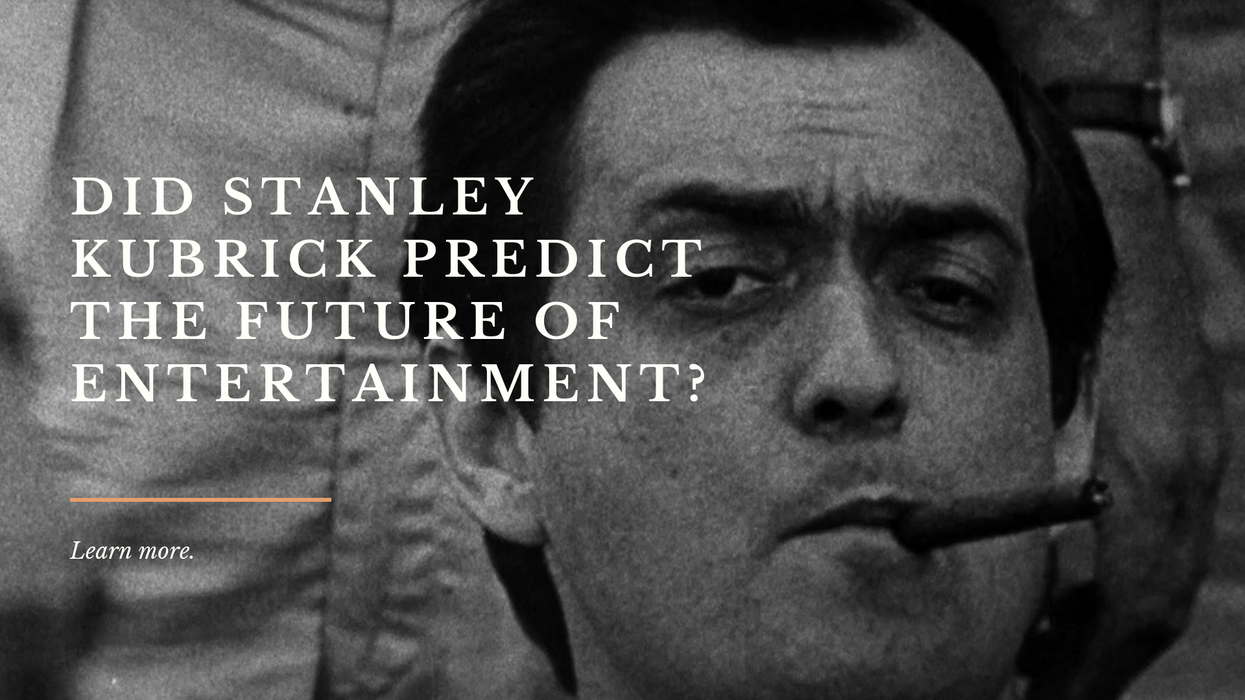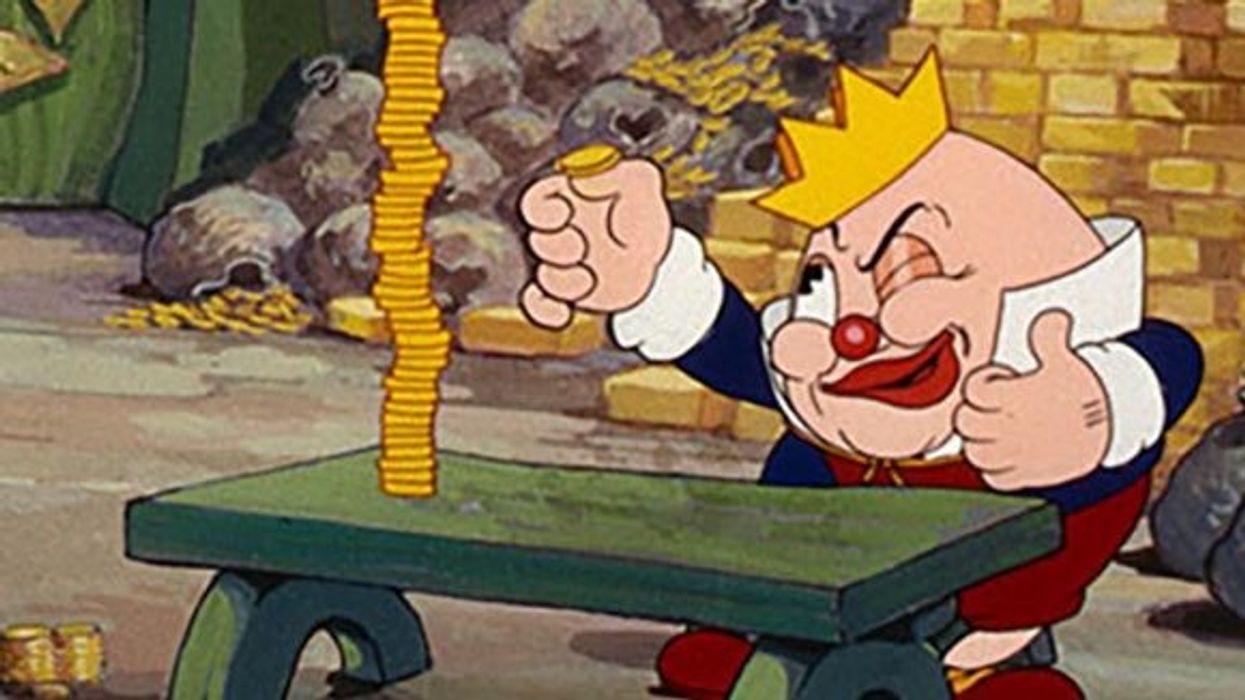Did Stanley Kubrick Predict The Future of Entertainment?
As technology evolves, branded content soars, and screens pop up all over the place, the future of film and TV has become the Wild West. But how did Kubrick see this as an opportunity? And how did he predict it?

In an early interview, Stanley Kubrick talked about audiences needed an economy to a movie's statement. As you know as a filmmaker, it can be hard to capture the attention of the audience. The greatest crime in entertainment is being boring. But what does that mean for the future of film and TV?
Today we'll go over what new formats and new buyers mean as you begin or extend your filmmaking career.
In this video essay from Must See Films, Darren Foley goes through Stanley Kubrick's words on the economy of a statement.
Inside the video, Kubrick states:
"Is there ever going to be a way to connect the structure of a silent movie with the quick presentation of the ideal of a TV commercial? Maybe a poet has to do it because I don't know, a novelist will never do it, a playwright will never do it, and if you're not a writer, you'll probably never do it, but somewhere, somebody has to be able to take the wonderful, economical structure, possibility of the silent movie with the tremendous power that a good TV commercial can generate on a topic in 30 seconds...I still think this would be the most exciting thing that happened since whoever it was that cut the first two films together and realized you could have editing...You really need, like, a sort of editing of the mind, which hasn't happened. Just tell a story in a different way."
While Kubrick never saw a movie he didn't think needed to be over two hours long, he raises an interesting prediction here about where filmmaking is going. It's remarkably prescient, especially since Kubrick lived at a time when even television wasn't at its peak like it is now. Many people talk about commercials when they dig into this Kubrick quote, but we are in changing times.

Sure, commercials are still big business, but most people have cut the cord or skip them on their DVRs. Entertainment as a whole is entering a new phase.
With outlets like Instagram, FacebookTv, Snapchat, YouTube, and Quibi, content is getting a lot shorter.
We're entering the era where we need poets, as Kubrick suggested, to make more short-form content as needed. That means short films and video essays are in greater demand than ever.
Producers are always looking for content, but now that content needs to be anywhere from three minutes to fifteen minutes long. So, how can you tell a story in that length of time? Well, dust off your three-act structure chops. It's certainly possible.
The hunger for this kind of content makes me excited because it means more jobs. And no just jobs shooting commercials.
So, how do you break in as a writer or director with this kind of content? You make it. The best part of these new economic statements is that they're small and rely much more on execution than an expense.
Whether or not you're making a web series or chasing something larger, think about how to produce it in small doses. What does your 60-minute pilot look like in 10-minute increments? What does your half-hour comedy look like in 5-minute segments?
And what can you do with the story if you shot it vertically instead of horizontally?
I know that's aspect ratio blasphemy, but it's something to think about.
So get out there and get creating. One minute at a time.
What's next? Learn about 2001's ending!
The ending of '2001: A Space Odyssey' has fascinated audiences for years. Stanley Kubrick is an enigmatic director who put a lot of layers into all his work. Today, we're analyzing the themes, motifs, and talking about what actually happened. Stanley Kubrick is a stunning filmmaker who challenges audiences at every level. He was famous for striking films with grand morals and questions. But when he released 2001: A Space Odyssey, it just was different. Hollywood knew downer endings and ambiguous plot points, but for one of the first times ever, a mainstream movie asked an audience to chose an ending based on their own belief system.
Click the link to learn more!











